- News
- Reviews
- Bikes
- Accessories
- Accessories - misc
- Computer mounts
- Bags
- Bar ends
- Bike bags & cases
- Bottle cages
- Bottles
- Cameras
- Car racks
- Child seats
- Computers
- Glasses
- GPS units
- Helmets
- Lights - front
- Lights - rear
- Lights - sets
- Locks
- Mirrors
- Mudguards
- Racks
- Pumps & CO2 inflators
- Puncture kits
- Reflectives
- Smart watches
- Stands and racks
- Trailers
- Clothing
- Components
- Bar tape & grips
- Bottom brackets
- Brake & gear cables
- Brake & STI levers
- Brake pads & spares
- Brakes
- Cassettes & freewheels
- Chains
- Chainsets & chainrings
- Derailleurs - front
- Derailleurs - rear
- Forks
- Gear levers & shifters
- Groupsets
- Handlebars & extensions
- Headsets
- Hubs
- Inner tubes
- Pedals
- Quick releases & skewers
- Saddles
- Seatposts
- Stems
- Wheels
- Tyres
- Health, fitness and nutrition
- Tools and workshop
- Miscellaneous
- Buyers Guides
- Features
- Forum
- Recommends
- Podcast
review
£1,700.00
VERDICT:
Rapid and stiff cyclocross bike well suited to racing
Weight:
9,500g
Contact:
At road.cc every product is thoroughly tested for as long as it takes to get a proper insight into how well it works. Our reviewers are experienced cyclists that we trust to be objective. While we strive to ensure that opinions expressed are backed up by facts, reviews are by their nature an informed opinion, not a definitive verdict. We don't intentionally try to break anything (except locks) but we do try to look for weak points in any design. The overall score is not just an average of the other scores: it reflects both a product's function and value – with value determined by how a product compares with items of similar spec, quality, and price.
What the road.cc scores meanGood scores are more common than bad, because fortunately good products are more common than bad.
- Exceptional
- Excellent
- Very Good
- Good
- Quite good
- Average
- Not so good
- Poor
- Bad
- Appalling
If you're in the market for a thoroughly capable cyclocross race bike, with suitable gearing and a stiff and responsive carbon fibre frameset, the Cyclo Cross 5000 needs to be on your shortlist. Chuck on a set of mudguards and some fat slick tyres and you can transform it into a winter steed, but really it's the bike's racing credentials that shine the most brightly here. Well, that and Merida's green paint job.
Ride and handling
If you're racing cyclocross, you want a frame that provides direct and responsive handling, so you can have full control through fast terrain and over loose surfaces and for sudden changes of direction. The Cyclo Cross 5000 fulfils that requirement, with a stiff carbon fibre frame and fork, thru-axles and a tapered head tube.
>> Read more: Your guide to cyclocross racing
Additionally, to help the frame survive the knocks of a 'cross race, the frame incorporates the company's Nano Matrix Carbon which aims to provide increased impact resistance, a useful trait in a bike designed for riding and racing off-road.
As is increasingly common among cyclocross bikes, the Cyclo Cross 5000 has disc brakes. The rear brake caliper is mounted inside the kinked chainstay and the brake cables are routed inside the frame. Even the fork has internal cable routing. Along with the internal gear cable routing, that means clean lines all round. The TRP Spyre brakes sit on post mounts at both ends, not the newer flat mounts, and have 160mm rotors.
Another growing trend with disc brake bikes is the use of thru-axles, a technology borrowed from our mountain bike cousins. Merida uses a 15mm front thru-axle and 12mm rear, with quite chunky levers that could be deemed a bit ugly if we were being super critical. They work fine, though, and getting the wheel in and out is a quick and easy task; thru-axles help to line up the disc in the rotor.
The use of the thru-axle fork, in conjunction with the tapered head tube (with a 1.5in lower bearing race) gives the bike really direct steering. Drop the bike into a steep and rutted descent and the bike feels precise, you can point it where you want to go with the precision that is needed in a cyclocross race bike. There's just no hint of flex or vagueness, the bike follows your inputs faithfully.
It's a firm ride, certainly on the stiff side, but provided you run the tyre pressures reasonably low you get a fair amount of cushioning, and the 27.2mm seat post and comfortable saddle help too. The racing DNA shines through, though, and it was best suited to short blasts rather than longer rides of discovery and adventure. It's built for going very fast around a tricky race course, rather than heading into the hills and wilderness.
The Cyclo Cross 5000 is a little lower and longer than the Specialized Crux Elite X1, and that does make the position quite a bit more aggressive. That'll suit racers that prefer a lower position, but if you like a taller front-end for tackling off-road trails, Merida has generously fitted the bike with a stack of spacers so you can raise the bars.
The Merida felt a bit more nimble in the slower speed corners when compared to the Crux, with the shorter wheelbase promoting a slightly more agile ride in the tighter turns that require a bit more body language. It's a bike well suited to typical UK cyclocross race courses. Away from the tape, it's a competent bike for exploring local trails, byways, and woods, but it lacks the versatility and comfort of one of the new breed of adventure bikes, though a change of tyres would certainly transform it if that's the sort of riding you're more interested in.
Equipment
It's clear the carbon fibre frame and fork eats into the £1,700 budget because while the bike isn't exactly under-specced, it might be reasonable to expect hydraulic brakes at this price. The TRP Spyre mechanical disc brakes are trustworthy, with a nice progressive lever feel, but they're not in the same ballpark as hydraulic discs. And once you've tried hydraulic, it's difficult to forget how good they are.
Elsewhere, the Shimano 105 11-speed groupset provides the usual high-quality shifting performance and reliability, even in the mud, and the Shimano RS500 46/36 chainset is a suitable setup for the lower speeds typical in a cyclocross race. An 11-28t cassette gives a good spread of gears and some useful lower ratios for tackling hillier terrain away from a school playing field.
A pair of auxiliary brake levers mounted to the centre of the handlebars provide useful control in some situations, but I personally found them a bit redundant most of the time, and out of tune with a carbon fibre cyclocross race bike. Still, if you do have designs on more inhospitable terrain they might well be useful additions.
There's a nod towards comfort with a 27.2mm seat post, which provides a bit more deflection in the rough. Mounted on top is a Merida Sport Pro saddle which I found comfortable with enough padding to provide a bit of extra cushioning when barreling along rough tracks.
Merida has put together a wheelset using its own Comp 22 Disc Cross rims with stainless steel spokes and Formula hubs, using Shimano's CenterLock disc rotor attachment system to fix the 160mm rotors into place. Apart from a few settling-in creaks from the rear wheel, the wheels proved durable and sturdy throughout the testing period and the rims survived one encounter with a rock garden when the front tyre pinched halfway down the descent.
The 33mm wide Maxxis Mud Wrestler tyres have a folding bead to save weight, and the tread pattern is well-suited to getting you through muddy sections and bogs. They're a bit draggy on the road, though, and not the fastest choice for drier terrain.
Rivals
Many other bike brands stick with aluminium at this sub-£2,000 price point, but while the metal frame does carry a weight penalty, you can expect a better level of equipment. Case in point is Ridley's X-Ride 20 Disc. It costs £1,600 and combines an aluminium frame with a Shimano 105 groupset and excellent hydraulic disc brakes. You do lose the carbon frame mind, but given how good modern aluminium frames are these days, it likely won't be the major performance inhibitor you might expect. And if you like the idea of a cyclocross bike for its all-around versatility, might I point you at the Specialized Diverge Comp. It's a hundred pounds more but you get Shimano's hydraulic discs and a bike better suited to 50/50 mix of road and rough stuff.
Overall
If you're in the market for a carbon cyclocross race bike and it must have disc brakes and thru-axles, the Merida Cyclo Cross 5000 is a thoroughly competent choice. It's exciting and rapid and very direct, and well-suited to typical UK cyclocross race courses. The mudguard mounts suggest versatility, but the firm ride is taxing on longer jaunts, and if you aren't looking to race, you might be better served by one of the newer breed of adventure bikes.
Verdict
Rapid and stiff cyclocross bike well suited to racing
If you're thinking of buying this product using a cashback deal why not use the road.cc Top Cashback page and get some top cashback while helping to support your favourite independent cycling website
road.cc test report
Make and model: Merida Cyclo Cross 5000
Size tested: Large
About the bike
State the frame and fork material and method of construction. List the components used to build up the bike.
Frame: Comp carbon frame with flex-stays, carbon dropouts, Nano matrix. Tapered head tube, internal cable routing, 142x12mm rear through axle
Fork: Full carbon tapered fork with internal cable routing, 15mm through axle and double chamber technology
Headset: Big Conoid S-bearing neck pro
Stem: Merida Pro - oversize clamp - Classic style
Speed: 22
Front Mech: Shimano 105
Rear Mech: Shimano 105
Chainset: Shimano RS500 46-36
Bottom Bracket: Shimano RS500
Chain: KMC X11
Cassette: Shimano 5800 11-28
Rims: Merida Comp disc rims - 22mm deep
Tyres: Maxxis Mud Wrestler 33c Kevlar bead Front Maxxis Mud Wrestler 33c Kevlar bead Rear
Front Hub: Formula Centerlock-15mm front
Rear Hub: Formula Centerlock- 12mm rear
Front Brake: TRP Spyre mechanical disc 160mm rotors
Rear Brake: TRP Spyre mechanical disc 160mm rotors
Seatpost: Merida Carbon - 15mm lay back 27.2mm
Tell us what the bike is for, and who it's aimed at. What do the manufacturers say about it? How does that compare to your own feelings about the bike?
Merida produce a wide range of cyclocross models at a number of price points to suit most budgets. For £1,700 you can get this full carbon fibre frame, with flex stays to dampen vibrations and carbon dropouts to save weight, with a full complement of thru-axles and a Shimano 105 drivetrain with TRP Spyre mechanical brakes.
Frame and fork
Overall rating for frame and fork
8/10
Tell us about the build quality and finish of the frame and fork?
It's clearly evident the Merida is a extremely high-quality product
Tell us about the materials used in the frame and fork?
Full carbon fibre frame and fork and Nano Matrix Carbon which is used to provide increased impact resistance
Tell us about the geometry of the frame and fork?
Ideal for racing, with a slightly shorter wheelbase providing good agility and it's low at the front, which will suit the racers
How was the bike in terms of height and reach? How did it compare to other bikes of the same stated size?
Very comfortable - a good stack of headset spacers for adjusting the height. I fitted a longer stem for my fit
Riding the bike
Was the bike comfortable to ride? Tell us how you felt about the ride quality.
It's not an uncomfortable bike, but it's definitely quite a firm ride. It's best suited to short cyclo-cross races on soft ground
Did the bike feel stiff in the right places? Did any part of the bike feel too stiff or too flexible?
The front in particular is very stiff and direct
How did the bike transfer power? Did it feel efficient?
No flex is noticeable
Tell us some more about the handling. How did the bike feel overall? Did it do particular things well or badly?
It's a fast handling and agile bike and it's easy to place the bike with great accuracy through the corners
Which components had the most effect (good or bad) on the bike's comfort? would you recommend any changes?
The chainset provides the right ratios for the low speed of a cyclocross race, and the TRP Spyre brakes work well but are left overshadowed when compared to hydraulic disc brakes
Rate the bike for efficiency of power transfer:
8/10
Rate the bike for acceleration:
8/10
Rate the bike for sprinting:
8/10
Rate the bike for high speed stability:
7/10
Rate the bike for cruising speed stability:
7/10
Rate the bike for low speed stability:
8/10
Rate the bike for flat cornering:
7/10
Rate the bike for cornering on descents:
7/10
Rate the bike for climbing:
8/10
The drivetrain
Rate the drivetrain for performance:
8/10
Rate the drivetrain for durability:
8/10
Rate the drivetrain for weight:
6/10
Rate the drivetrain for value:
7/10
Wheels and tyres
Rate the wheels for performance:
7/10
Rate the wheels for durability:
7/10
Rate the wheels for weight:
7/10
Rate the wheels for comfort:
6/10
Rate the wheels for value:
7/10
Rate the tyres for performance:
7/10
Good mud tyres, but slow on the road and not ideal for dry summer use
Rate the tyres for durability:
7/10
Rate the tyres for weight:
8/10
Rate the tyres for comfort:
7/10
Rate the tyres for value:
7/10
Controls
Rate the controls for performance:
7/10
Rate the controls for durability:
7/10
Rate the controls for weight:
7/10
Rate the controls for comfort:
7/10
Rate the controls for value:
7/10
Your summary
Did you enjoy riding the bike? Yes
Would you consider buying the bike? Probably not - I'd lean towards hydraulic disc brakes
Would you recommend the bike to a friend? A racing friend, yes
Rate the bike overall for performance:
8/10
Rate the bike overall for value:
7/10
Use this box to explain your score
It's a thoroughly competent bike and offers a carbon frame at a price when many rivals are only offering aluminium frames
About the tester
Age: 31
I usually ride: My best bike is:
I've been riding for: 10-20 years I ride: Every day I would class myself as: Expert
I regularly do the following types of riding: road racing, time trialling, cyclo cross, commuting, touring, mtb,
David worked on the road.cc tech team from 2012-2020. Previously he was editor of Bikemagic.com and before that staff writer at RCUK. He's a seasoned cyclist of all disciplines, from road to mountain biking, touring to cyclo-cross, he only wishes he had time to ride them all. He's mildly competitive, though he'll never admit it, and is a frequent road racer but is too lazy to do really well. He currently resides in the Cotswolds, and you can now find him over on his own YouTube channel David Arthur - Just Ride Bikes.
Latest Comments
- Smoggysteve 0 sec ago
Sorry, I don't buy the argument about large cars. I drive an Audi Q5, a car I bought purely due to my partner having a disability. It's easy to...
- perce 14 min ago
Aw bless. My wife and I usually go to our local M&S cafe once a week for a bite to eat, usually Wednesday but sometimes Thursday. I usually...
- Exup 1 hour 29 min ago
At least some justice is being done........
- BIRMINGHAMisaDUMP 1 hour 39 min ago
I imagine the Police treat bike theft as an insurance issue rather than a criminal issue. Can't blame them to be honest. The best thing is to use...
- David9694 2 hours 6 min ago
Police launch investigation into destruction of barber shop in Hythe High Street...
- barbarus 10 hours 8 min ago
I live right in the centre of this. It's really heartening to read that there are people in favour....
- ktache 10 hours 36 min ago
I'd love for them to put a number on that "inappropriate speed"
- Nick T 11 hours 29 min ago
They need to use some harder material for the cleat retention clip really, that's worn out long before any bearing has had a chance to fail on...
- yiipeeia 14 hours 19 min ago
I am 67 and I cycle with two groups during the year The Haddenham Easyriders International who ride during the summer on Thursday evenings, and The...
- don simon fbpe 14 hours 30 min ago
Brexit is a wholly selfish act....































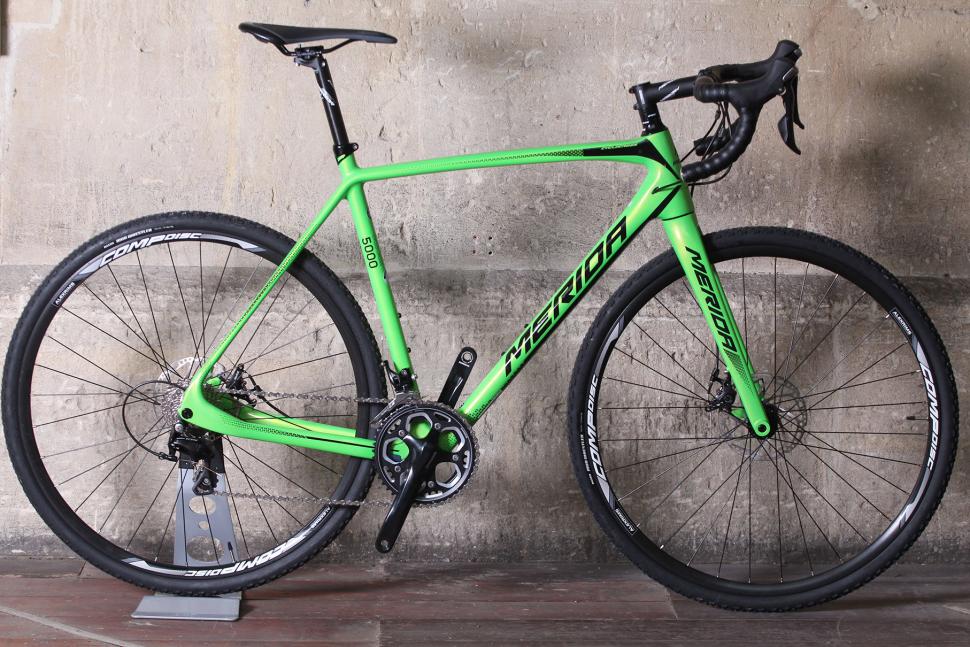
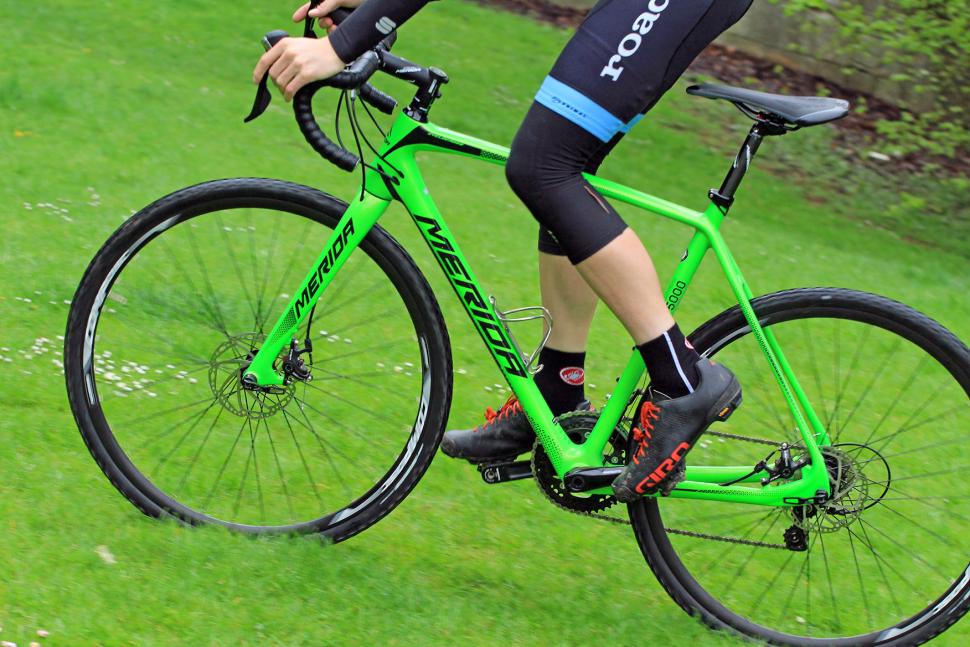
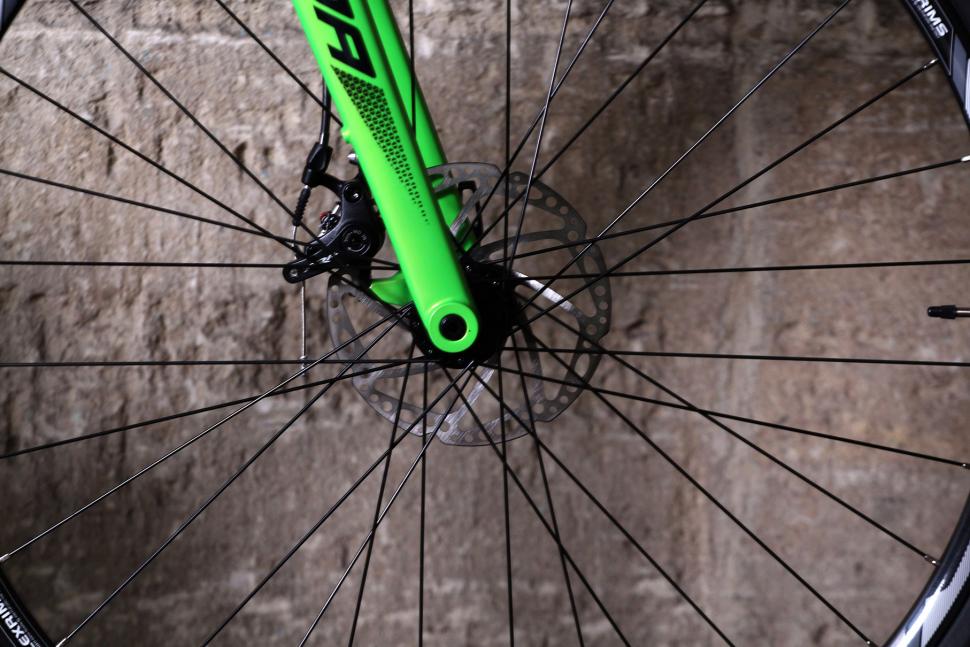
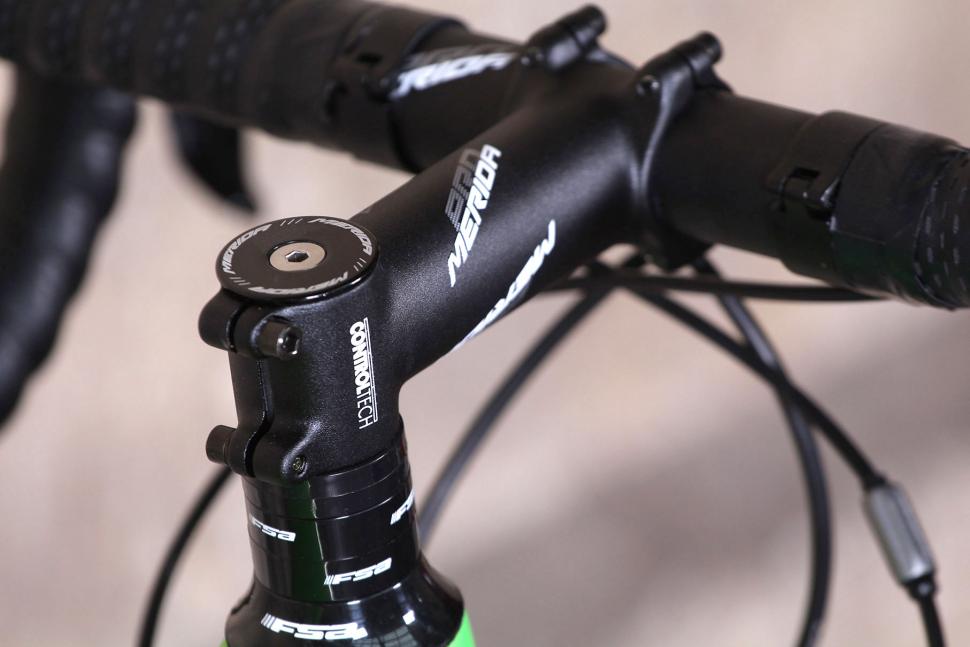
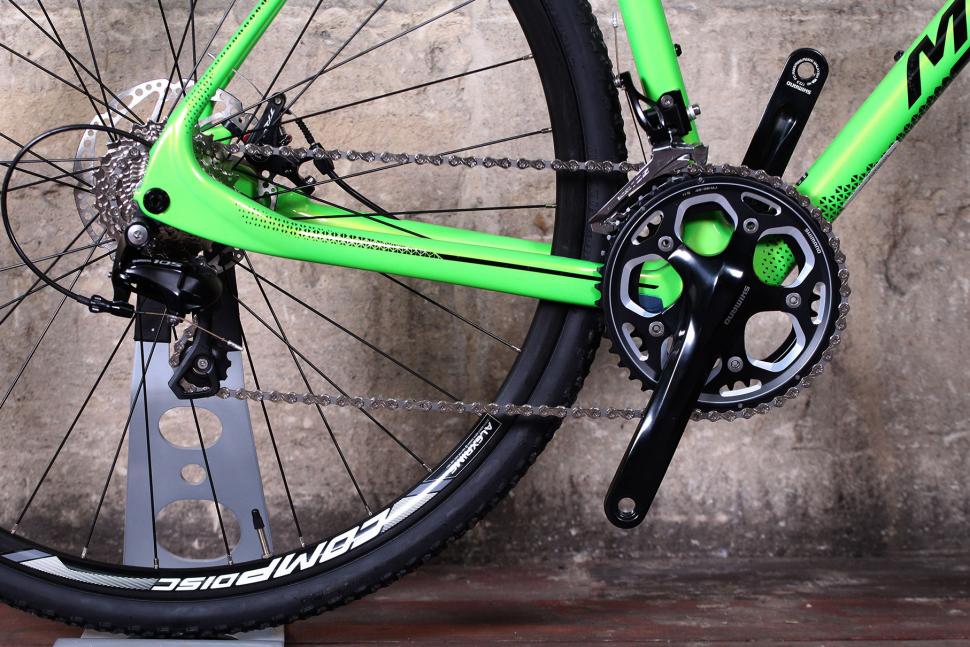
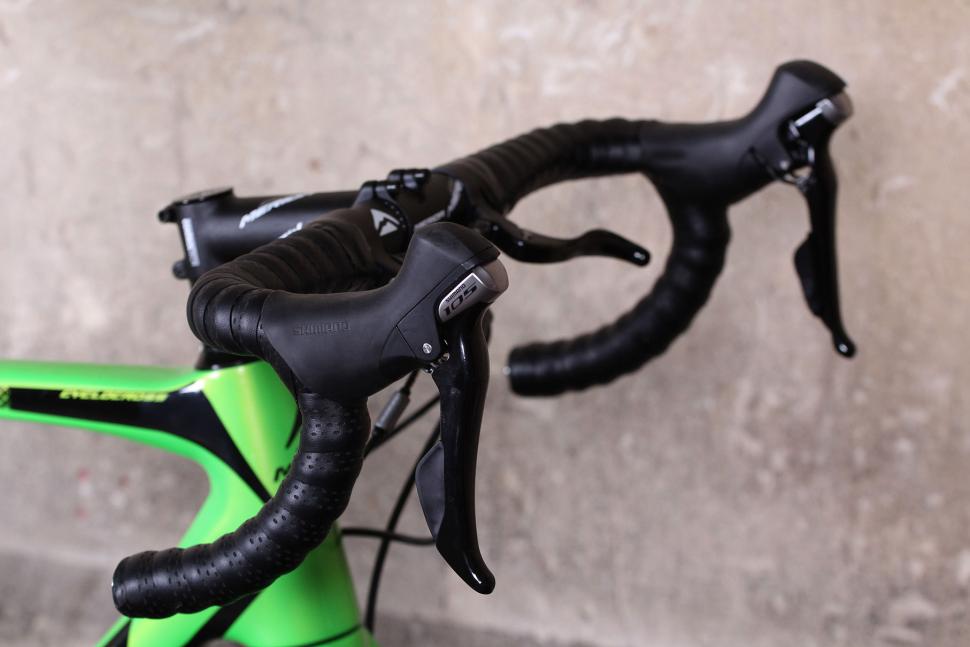
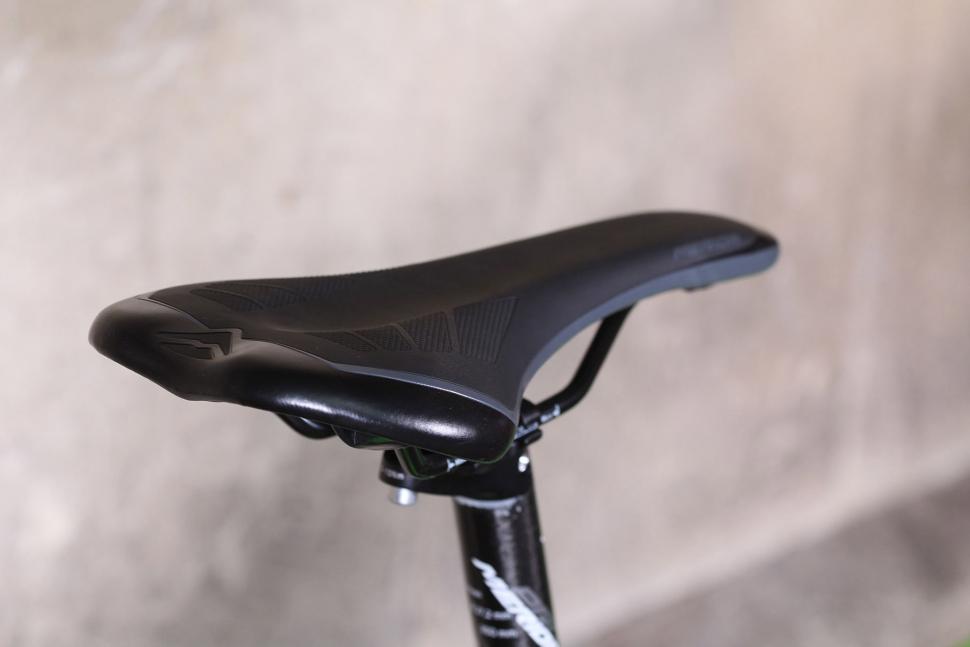
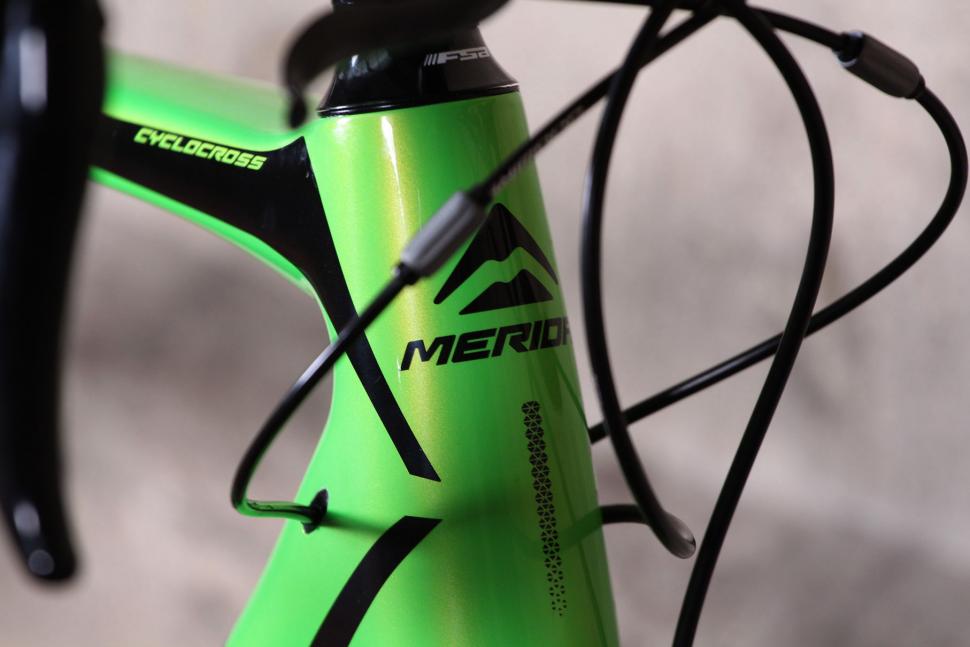
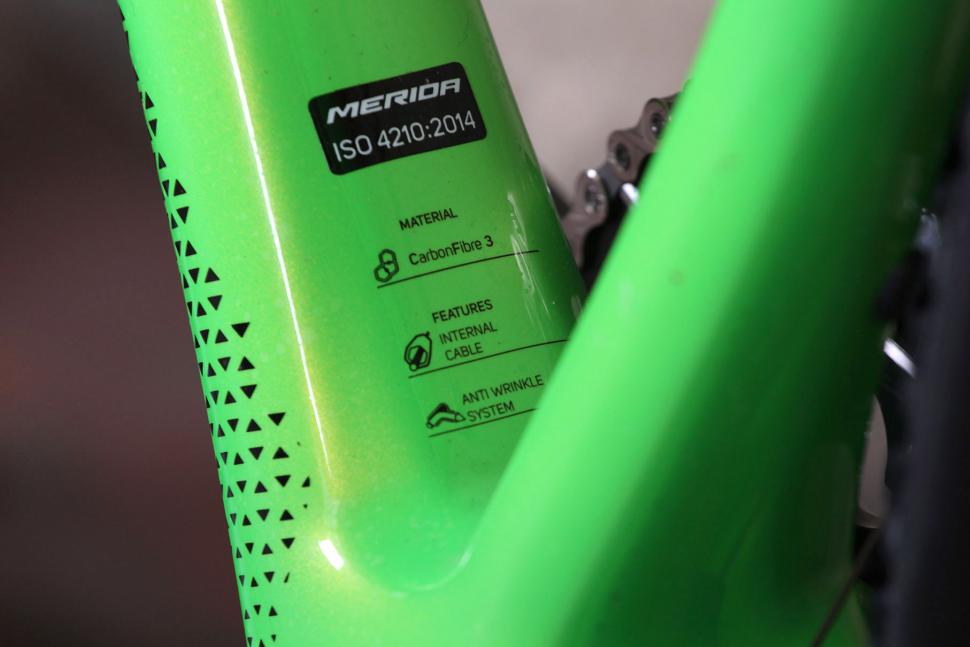
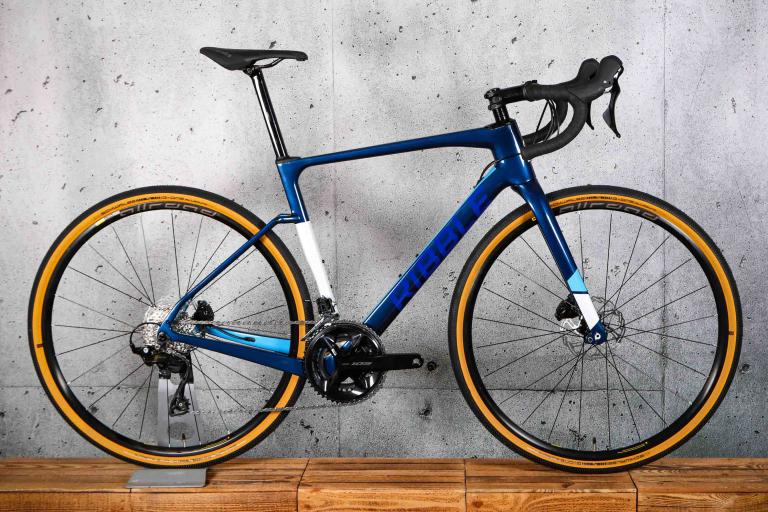
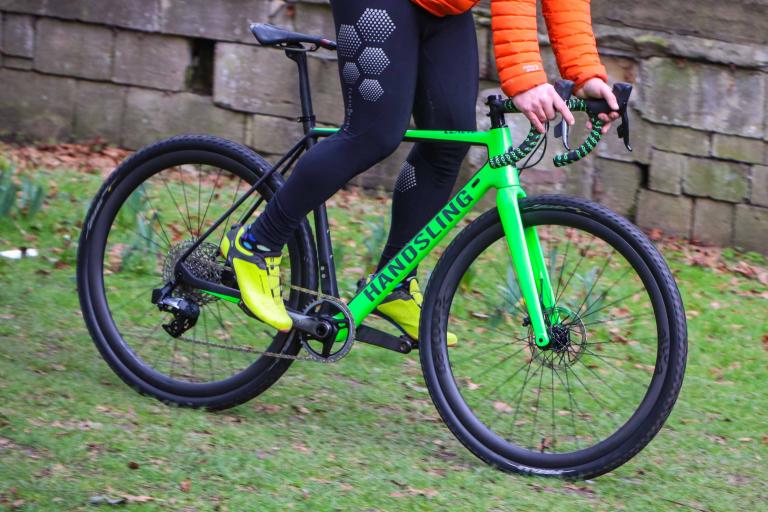
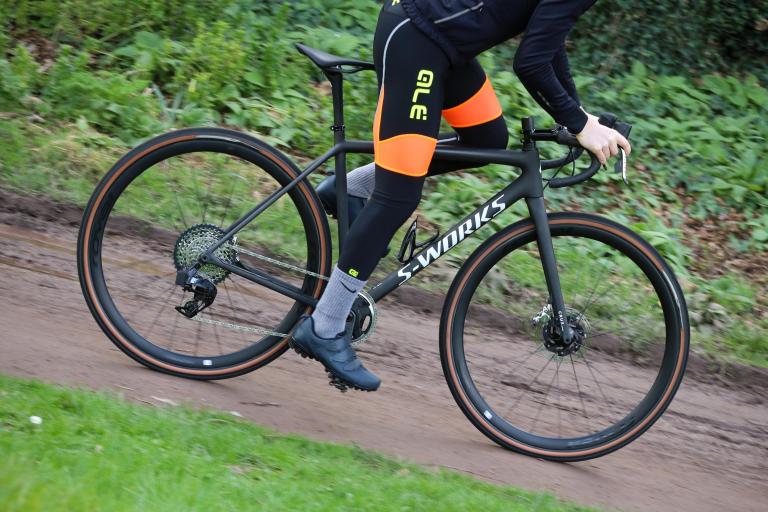
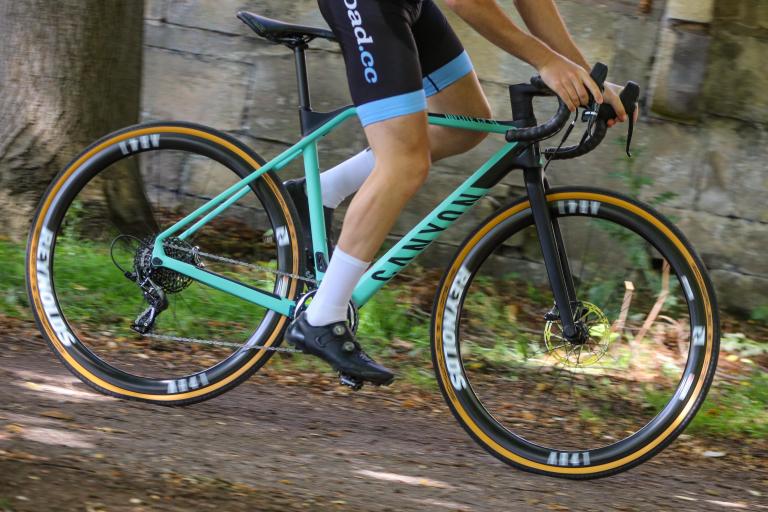
Add new comment
7 comments
as far as i know the planet x xls isn't thru axle - depends if you think this important but its not quite comparing like with like - well written review
My quote of the XLS was in relation to my experience of it as a problem free and very good bike. But if you want thru axle then the Bish Bash Bosh (which Jez Ash has) or the Viner Strada Bianca fit the bill. And in the CX category the Viner Super Prestige does as well.
Current Jamis Renegade Expert has Shimano hydraulic brake upgrade, rather than the TRP.
Got mine just over a month ago when price was dropped from £1,650 and now dropped again to the £1,250 mentioned above. Bargain, but didn't like the tyres, so just swicthed it to Schwalbe G-One tubeless.
Evans currently shows that as having both RS505 hydraulics and Hy/Rds, confusingly. If it really is the former, that's the bargain of the year, I'd say. You must be well pleased.
Seems rather expensive compared to some of PX's offerings with full hydro.
Given the questionable quality of their carbon frames and daft cable routing on the XLS, I'd rather pay the extra.
Well, mine's seen plenty of abuse. And our CX league seems fairly full of them. Indeed, weird daily pricing aside, I've never heard anyone have an issue with, say, an XLS frame...
But if that niggle is a problem then the Jamis Renegade is cheaper and has some pedigree. Adventure bike but, hey, there's no real difference. TRP Spyre on that one and only £1250 at Evans at the moment.
Indeed, whilst currently reduced, the Super X is only £100 more at Evans as well with hydro.
The Merida looks great. But Spyres at £1750 seems a bit on the cheap side.